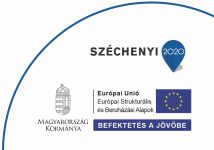Kiss Gábor Dávid: International finance. (2020) [Jegyzet, tankönyv]
Előnézet |
Szöveg
International Finance MA 2020_20200505_KÉSZ.pdf Letöltés (2MB) | Előnézet |
Angol cím
International finance
Angol nyelvű abstract, leírás
This book was written to support the lecture material within the International Finance course for students of the International Economy and Business MSc Programme with intermediate financial knowledge. Therefore, readers must gather and utilize their knowledge within the field of macro finance. The chapters have to following structure: core concepts are introduced in the external balance and exchange rate regimes, their historical development and evolution is presented in the second chapter, while their practical relevance is shown through their appearance in the monetary policy. Later the international financial organisations are presented, to show the instruments of the global financial contingency measures. The last chapter summarizes the speciality of the developing countries. Each section ends with the lists of essential literature. This learning material improves the competencies of an economist studying in the International Economy and Business MSc programme in the following ways: a) Regarding knowledge, the student i. Has a firm grasp on the concepts, theories, processes and characteristics of economics and the economy in general on a micro and macro level; the student is up to date with the defining economic facts. ii. Is familiar with the process of European integration and the specific policies of the European Union. iii. Knows and utilises the decision theories and analysing methods of economics, international economics and world economics. iv. Besides being a proficient language user in his/her mother tongue the student has a good command of the linguistic terms used in economics both in his/her mother tongue and at least two foreign languages. b) Regarding competencies, the student i. Can make independent and new deductions, formulate original thougths and solution methods, utilise sophisticated analitical and modelling methods. The student is capable of formulating solution strategies for complex problems and decisions within the organisational culture both in a domestic and an international setting; ii. Is capable of developing effective international business strategies. The student can analyse the geopolitical, social, cultural and religious aspects of international business settings; iii. Is capable of planning and organising economic activities in connection with foreign trade, finance and developmental policy along with employing previously learned methods, making deductions, suggestions and decisions. The student is capable of performing well in economic institutions, international and governmental organisations; c) Regarding attitude, the student i. Takes a critical attitude towards the work and behaviour of his/her employees and also of himself/herself. The students exhibits an innovative and proactive attitude to solving economic problems; ii. Is committed to quality, sustainability and variety and has a critical attitude towards his/her own knowledge, work and behaviour along with the knowledge, work and behaviour of his/her employees. Feels responsible for correcting mistakes and developing the skills of his/her colleagues. d) Regarding autonomy, the student i. Takes responsibility for his/her own work, the organisation or company he/she is leading and the workers he/she is employing. The student identifies, plans and organises his/her own and his/her employees’ professional development and takes personal responsibility for them; ii. Displays an initiative, responsible attitude towards social and public affairs in connection with his/her coworkers; iii. Initiative in solving problems, creating strategies and in supporting the cooperation of coworkers both within the same organisation and between different institutions
| Oktatási anyag típusa: | Jegyzet, tankönyv |
|---|---|
| Közreműködők: | Közreműködés típusa Közreműködő Email lektor Gyáfrás Edit NEM RÉSZLETEZETT |
| Angol cím: | International finance |
| Dátum: | 2020. Június 30. |
| Oldalszám: | 110 |
| Nyelv: | angol |
| Tananyag típusa: | jegyzet, tankönyv |
| Tananyag szervezettségi szintje: | önálló tanulási objektum |
| Tipikus tanulási idő: | 1 szemeszter |
| Nehézségi szint: | 4 |
| Célcsoport: | Hallgató típus Szak típus MSc/MA/OM nappali |
| Feladatcél: | International Finace kurzus oktatása |
| Készségterületek: | Intorduction to fiance, alapszakos szinten |
| Szerzői jog birtokosa: | Kiss Gábor Dávid |
| Kapcsolódó URL-ek: | http://dtk.tankonyvtar.hu/xmlui/handle/123456789/13238 |
| Projektek: | EFOP-3.4.3-16-2016-00014 |
| Alprojekt: | AP2 |
| Altéma száma: | AP2_GTK_2 |
| Tanszék, intézet: | Pénzügyek és Nemzetközi Gazdasági Kapcsolatok Intézete |
| Kar: | Gazdaságtudományi Kar |
| Szemeszter: | 2019/2020/2 |
| Kurzuskód: | 23B103EN/EA |
| Kurzusnév: | International Finance |
| Megjegyzések: | Bibliogr.: p. 109-110. |
| Kulcsszavak: | pénzügy |
| Szakterület: | 05. Társadalomtudományok 05. Társadalomtudományok > 05.02. Közgazdasági és gazdálkodástudományok 05. Társadalomtudományok > 05.02. Közgazdasági és gazdálkodástudományok > 05.02.01. Közgazdaság, ökonometria 05. Társadalomtudományok > 05.02. Közgazdasági és gazdálkodástudományok > 05.02.01. Közgazdaság, ökonometria > 05.02.01.13. Gazdaságtörténet, fejlődés 05. Társadalomtudományok > 05.02. Közgazdasági és gazdálkodástudományok > 05.02.01. Közgazdaság, ökonometria > 05.02.01.01. Ökonometria, statisztikai módszerek 05. Társadalomtudományok > 05.02. Közgazdasági és gazdálkodástudományok > 05.02.01. Közgazdaság, ökonometria > 05.02.01.04. Pénzpiacok, pénzügyi eszközök árai, nemzetközi pénzügyek 05. Társadalomtudományok > 05.02. Közgazdasági és gazdálkodástudományok > 05.02.01. Közgazdaság, ökonometria > 05.02.01.09. Makroökonómia |
| Feltöltés dátuma: | 2020. Aug. 03. 08:50 |
| Utolsó módosítás: | 2022. Már. 17. 11:25 |
| URI: | https://eta.bibl.u-szeged.hu/id/eprint/3122 |
 |
Tétel nézet |


